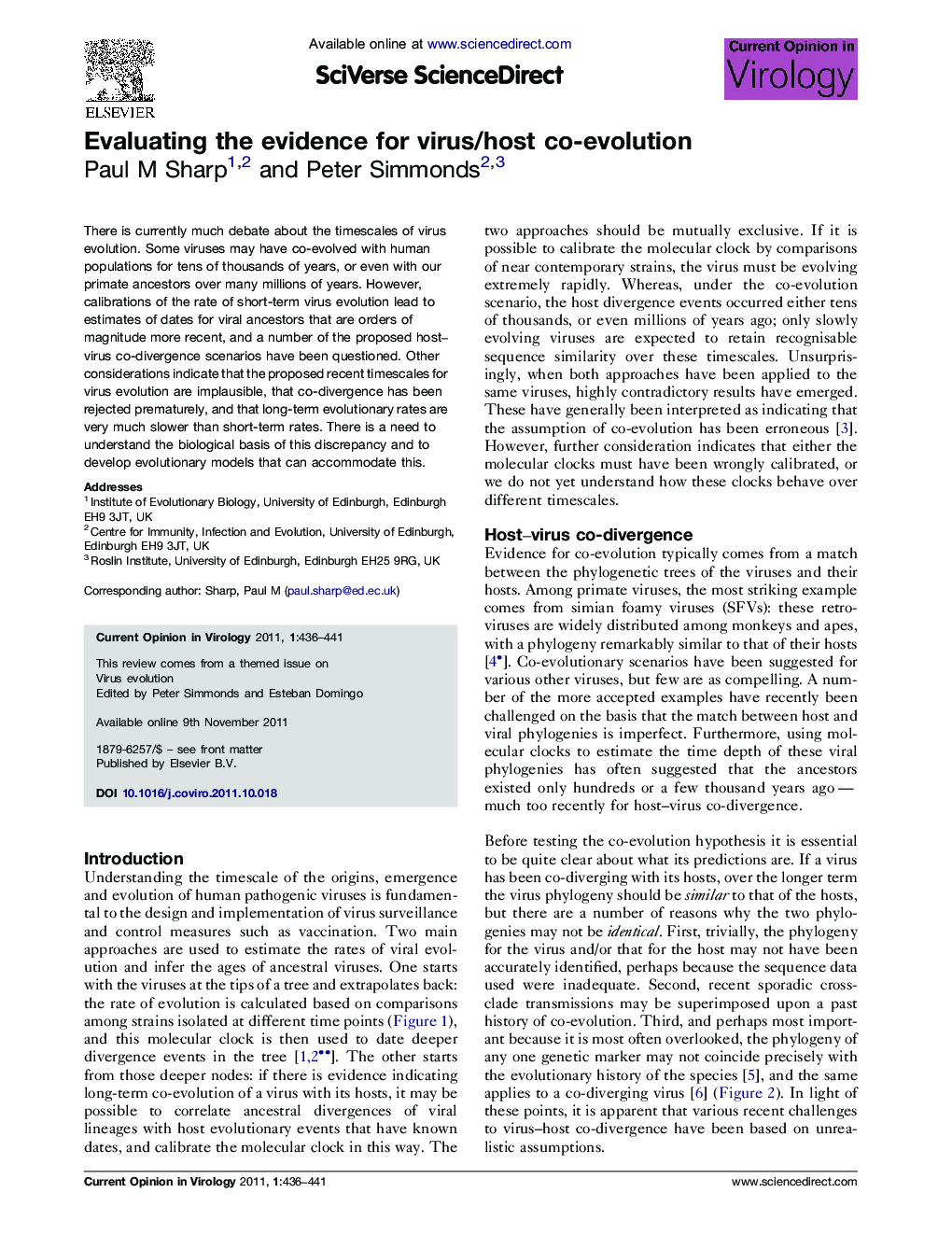| Article ID | Journal | Published Year | Pages | File Type |
|---|---|---|---|---|
| 2473576 | Current Opinion in Virology | 2011 | 6 Pages |
There is currently much debate about the timescales of virus evolution. Some viruses may have co-evolved with human populations for tens of thousands of years, or even with our primate ancestors over many millions of years. However, calibrations of the rate of short-term virus evolution lead to estimates of dates for viral ancestors that are orders of magnitude more recent, and a number of the proposed host–virus co-divergence scenarios have been questioned. Other considerations indicate that the proposed recent timescales for virus evolution are implausible, that co-divergence has been rejected prematurely, and that long-term evolutionary rates are very much slower than short-term rates. There is a need to understand the biological basis of this discrepancy and to develop evolutionary models that can accommodate this.
► Short-term evolutionary rates of viruses are often estimated to be very fast. ► Virus/host co-evolution implies very slow long-term evolutionary rates. ► To resolve this paradox, evidence for virus/host co-evolution has been questioned. ► Evidence for very slow long-term evolutionary rates in many viruses is strong. ► The biological reasons underlying this paradox and unknown and should be investigated.
